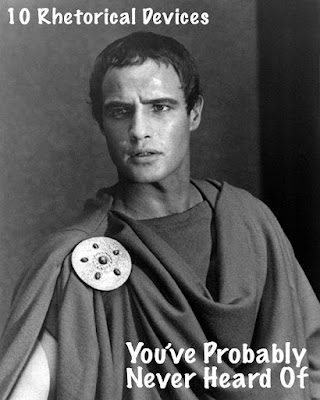Ghosts in Shakespeare
Ghost. 1) an apparition of a dead person which is believed to appear or become manifest to the living. 2) a disembodied soul. Present in almost every Halloween tale ever told, ghosts are the quintessential image of Halloween. But how have we developed the image of a ghost as a sheet with two eye-holes, as opposed to Shakespeare’s interpretation?
In Macbeth and Julius Caesar, Shakespeare uses ghosts of dead characters to intensify the horror of the characters on stage and bring the living characters to their demise. The presence of Shakespeare’s ghosts create dramatic irony by frightening only the characters and not the audience. The petrified characters, in turn, increase the urgency of the scene and heighten the stakes.
In Macbeth, the ghost of Banquo frightens the guilt-ridden Macbeth without even uttering a word. He instead “sits in Macbeth’s place” (IV.1), “nod[s],” (IV.1) and “shake[s his] gory locks at” (IV.1) Macbeth. Shakespeare uses exclusively physicality, instead of text, to characterize the Ghost of Banquo. We understand that, because all the other characters are seated at the same table as Macbeth, looking at the same empty stool, the Ghost of Banquo is a figment of Macbeth’s imagination. Our interpretation of the Ghost leads us to examine Macbeth’s deteriorating psychological state. The Banquet Scene, IV.1, is perhaps the turning point in the play for Macbeth himself because his madness begins to affect his interaction with other members of the Scottish royalty, whom we perceive as the public or audience for the reveal of Macbeth’s conscience.
In Julius Caesar, the Ghost of Caesar interacts with Brutus in conversation, which establishes some realism of the Ghost. However, no one but Brutus has seen or heard the ghost. We, as the audience, are left with two possibilities for the Ghost: either he is real and only disturbs Brutus, or he is a manifestation of Brutus’ guilt and therefore imaginary. The Ghost activates Brutus’ conscience to such a great degree that Brutus runs onto his own sword. The state of being of the Ghost of Caesar affects our perception of both Caesar and Brutus. If the Ghost were real, then Caesar, in vengeance, would have brought Brutus to his death. We now feel resentful towards Caesar, and are intimidated by the power he holds, even after death. If the Ghost were a figment of Brutus’ imagination, Brutus would have gone made and would have been the agent of his own demise and death. We perhaps pity Brutus, but we do not attempt to sympathize with him because he was the originator of his own guilt and misery.
Shakespeare’s use of ghosts, who interact with living characters, in his plays indicates that his interpretation was had much darker and gorier than ours. His ghosts were subject to the same vices, vengeance and mockery, as his humans. They were simply an omnipotent version of the human, because they could not be killed or controlled by the live characters in the scene. That omnipotence, that safety from all worldly things, is what makes ghosts so terrifying in the first place, even today.




Comments
Post a Comment
All comments are moderated by the Green-Eyed Blogger to avoid spam. If you do not see your comment right away, do not worry; it is simply undergoing our routine moderation process.